by Richard Abraham
Graham said it was called the burnt toast theory.
The theory goes that if you burn your toast in the morning, you have two options.
The first: rage against the disruption to your daily routine. Whether you put more bread into the toaster or push on hungry through your day, the mood is negativity and stress.
That doesn’t sound very appealing.
The second option: view the burnt toast as a minor inconvenience, a new reality that has diverted the course of your day into something unexpected. Who knows, the new route might be surprisingly scenic.
From Wednesday afternoon to Thursday afternoon, we burnt our Tour toast. And let me tell you, it’s not a pleasant feeling to climb into a taxi and be driven away from your Tour car. Like Jack Sparrow says in Pirates of the Caribbean, a ship is not just a mast and a keel and some sails; a ship is freedom.
That car was our little world, our home from home. Our freedom, our sanctuary, our common space in our three-and-a-half-week odyssey where we quickly rush in and out of hotel rooms or apartments or other spaces available for rent in France [see Lionel, I didn’t mention the kebab shop of horrors, because we’re totally over it].
We had a nest in the back and we knew where we had stashed useful things. We also knew where we had stashed other things that we thought would be useful but realised, when we emptied them from the door pockets, were not. Boiling hot mini-can of Tourtel non-alcoholic shandy, anybody?
We’ll shortly be putting out a KM0 episode for Friends of the Podcast subscribers in which we look into the topic of roommates on Tour, and there are some superb anecdotes, all brilliantly gathered by Mitch over the course of a few days on the race. Yet unlike the riders, us reporters generally spend so little time in our accommodation that our vehicles become our shared rooms and team buses combined. That car was our freedom and we had lost it.
Enter Frank, the local postman. I could tell he and his wife Halyna were different the moment I called them to say we might be arriving a little late. They weren’t running their apartment, La Petite Gite in St Etienne-le-Laus, purely for profit like many places we’ve stayed this month.
Halyna was working late in a local hotel in Gap and Frank – an ice motorbike racer in his spare time – welcomed us to their home, where chickens roamed the gardens and the evening light fell cosily on the hills behind.
We explained that we had to sit down and record; he brought us each a beer. When we were done, he brought some more. Having explained our vehicular predicament over the phone, Halyna and Frank had left us some pasta, some homemade sauce, some cheese, and so with Mitch chef for the night, the four of us sat and chatted away the stresses of the day.
It was one of the simplest but most beautiful meals of the whole trip. The following morning, we were left hanging around while the car rental company sorted out our replacement set of wheels. Frank told us we could stay as long as we needed. While we tried to secure an option that wouldn’t involve one of us taking a four-hour taxi to Lyon, an old colleague of mine from my guiding days was able to ride over from his house 10km away, and we hung out in the garden and chatted about the old times.
Before we knew it, Graham had got a scarily fast cab to Gap to collect our sub-optimal replacement car and we were back on the road and back in the Tour bubble. Thrown back onto the conveyor belt for the final three and a half stages, our serendipitous side quest complete.
Sometimes in modern life we all plan things too much and we don’t leave space for burnt toast. In the end, stuff like this – how you deal with it, where it takes you – are the things you really remember.
That said, Nice is in sight, and that’s quite enough of that for now. It’s 9am, we need to roll, and it’s time to squeeze into our new, significantly smaller, home from home. We’re all praying it has enough oomph to get over the Bonette.
Girmay stands on the brink of history
With three stage wins and one arm in the final green jersey, Biniam Girmay stands on the brink of making history as the first black African rider to win a classification at the Tour de France. He just has to hold Jasper Philipsen at arm’s length in the final couple of intermediate sprints and make it to Nice. Graham Willgoss looks at the wider impact of Girmay’s success.
Jostling for position among the press pack with your face crammed up against the sweaty armpit of a man who has surely avoided a proper shower since about stage 13, you have to try and remember: the team buses are the best place to grab a few words from a rider.
There was at least a little more space around Intermarché-Wanty’s wagon at the end of stage 16. The journo sweatfest was in full swing outside the Alpecin–Deceuninck bus (Jasper Philipsen having taken his third stage) and the Astana bus (it could have been Mark Cavendish’s final sprint at the Tour de France) in the 35-degree heat. But only a handful of us were hanging around in hope of a few words from Biniam Girmay.
The man who has worn the green jersey since going top of the points classification after stage five had crashed going into the sprint in Nîmes. Was he okay? What was the damage? Would he be fit and firing to fight off Philipsen’s challenge going into the intermediate sprints in the Alps?
As it turned out, here was not the place to find the answers – this time. Girmay had gone straight to the team hotel after his podium duties. And, apart from for a few riders – Mike Teunissen, Kobe Goosens and Georg Zimmermann – collecting their bags and offering very little to the microphones pointed their way, the door to the bus remained closed.
Intermarché probably summed up the mood in the camp quite well, albeit unintentionally. They simply drove off.
Given the day’s drama, you could hardly blame them. Ah well.
Intermarché, the team with the smallest budget here, and Girmay have been one of the stories of this race. The 24-year-old Eritrean is 23 points ahead of Philipsen in the race for green at time of writing, before the start of stage 19. He became the first black African rider to take a win at the Tour when he outsprinted a stacked field at the end of stage three into Turin. In Colombey-les-Deux-Églises, on stage eight, he made it two. In the space of just 11 days, on stage 12, he had his hat-trick.
Girmay has spoken openly and eloquently about being the only black rider in the peloton at the Tour. About cycling being a predominantly white sport. About his vision for young talent from Africa. As he tweeted (or should that be ‘X-ed'?) after his first stage win: ‘Let me open the door.’
I can sum it up no better than a colleague who remarked after Girmay’s stage 12 post-race press conference: ‘What an admirable man.’
Without wanting to go down the road of what one fan on Twitter rightly called ‘an insanely reductive framing of an entire continent as large as Africa’, it’s worth attempting to put into perspective the impact Girmay has made far beyond his sport.
Kimberly Coats, CEO of Team Africa Rising, a non-profit that promotes and supports cycling development in Africa, is unequivocal about the wall Girmay has driven a bloody great double-decker bus through.
‘You can’t underestimate the reverberation not just through Eritrea, not just through Africa, but I’m watching it and my phone was just blowing up,’ she says. ‘I’m on this WhatsApp group with all my Benin riders and they just went crazy. Sending pictures and claps and high-fives. I literally had 50 messages from just my kids in Benin alone.
‘The more they see a kid like Biniam win, the more believable it is to them that they too can win,’ Coats continues. ‘And these kids know where Biniam comes from.
‘They know he went through the same challenges they’re going through right now, trying to get visas to go train in Europe. They know that someone like them made it. And the first time was like: “Okay, he can do it.” But the third time? They’re like: “This is real. This is really real.” And that’s the most powerful thing.’
Team Africa Rising began its work in Rwanda in 2007, where they established a programme to develop a group of professional cyclists with the infrastructure needed to enable them to compete on the international stage. The intention was always to hand it over to the national federation – which they did. Because they had been so successful in Rwanda – with the country coming from nil points on the Africa Tour to third place – everyone wanted to know what Africa Rising was doing and how they could get involved.
‘So along the way, prior to us leaving Rwanda, we were helping out Ethiopia, we invested about $80,000 worth of equipment and training support there. We’ve been to Eritrea several times – we did a big bike distribution with Qhubeka; we did mechanics’ training; we’ve done all sorts of things in Eritrea.’
Qhubeka is an official Tour charity partner that distributes bicycles to people who need them in order to improve their access to schools, clinics and jobs. To date, it has donated more than 110,000 – mainly across South Africa, but notably also in Eritrea. You’ll likely remember the bicycles change lives slogan from the pro team it was named for a few years back.
Qhubeka, while we’re here, is an Nguni word that means ‘to progress’, or ‘to move forward’.
On we go with Coats’ organisation, which is now developing virtual talent detection, training, and racing in Benin, Sierra Leone, and Togo. In their words, this West African expansion is opening doors to cyclists who have been riding and racing in obscurity.
‘This is going to change the scope and hopefully the investment in the sport on the African continent because, honestly, we’ve operated in Africa since 2007. And our budget has been as low as $50,000 a year to, I think, our highest [budget for the] year was when we built the Africa Rising Cycling Centre in Rwanda. And that was $500,000. Think about how much work has to be done with half a million dollars.’
In 2019, Coats met the federation president for Benin. Now things are taking off there, too.
‘We just got them 12 new race bikes and 28 brand new training bikes from Scott. We funded that. And it’s just expanded from there. We help out Sierra Leone. Just in all sorts of different ways now. Sierra Leone needed tablets to run their Zwift, so we gave them the money for that. So, it’s a variety of things [that we help with].
‘Most kids don’t make it to the top level of the sport. The fact that someone like Biniam Girmay, coming from where he has, has got to the top level [is everything]… Our goal has always been: most kids aren’t going to turn pro, so what do we do with them as they start to phase out of the sport? It’s what I’m dealing with right now in Benin – I have some guys who can’t go to the next level. We’re investing younger and younger there, only dealing with juniors now.
‘So how do I keep these guys, who’ve had some experience, they’ve raced in Morocco, Cameroon, Algeria – how do I make those guys the coaches or mechanics? Or soigneurs or administrative staff? Because they’re our most valuable people – if you don’t keep the people who have lived, eaten and breathed the sport in the system, then you’re just wasting time and money and energy. These guys and girls know how to do it.’
Whether the green jersey ends up on his shoulders or not, Girmay’s success at the Tour can be a focal point for all of this, says Coats. That’s what you get when you wait for ages, then your stage wins come along like buses.
Qhubeka is auctioning a Green Jersey signed by Biniam Girmay: https://www.qhubeka.org/bid

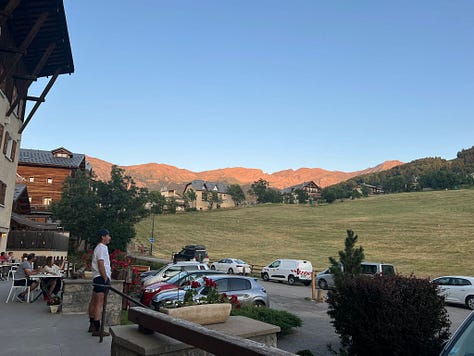
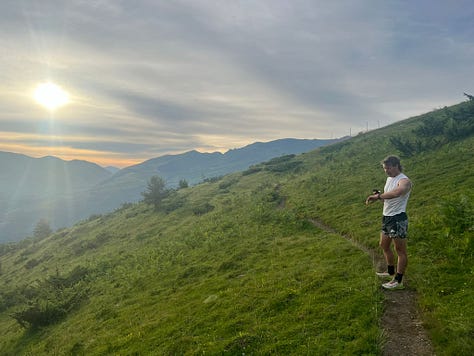
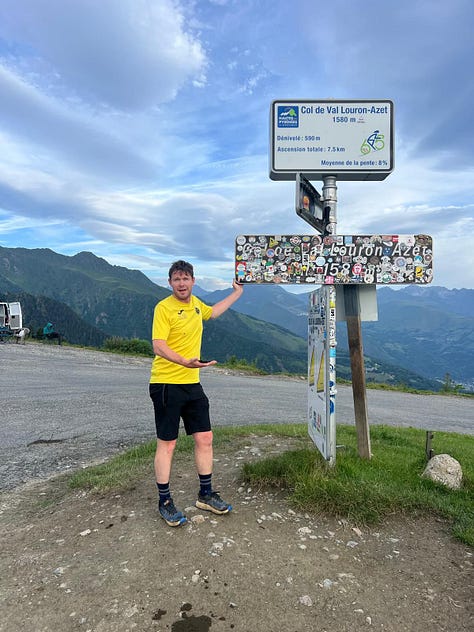
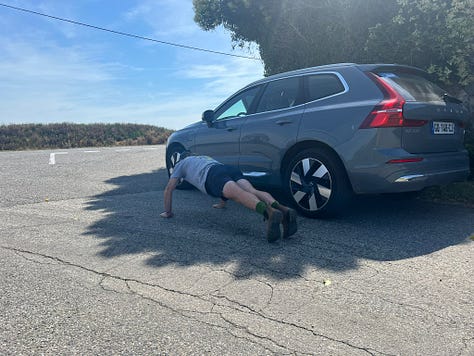

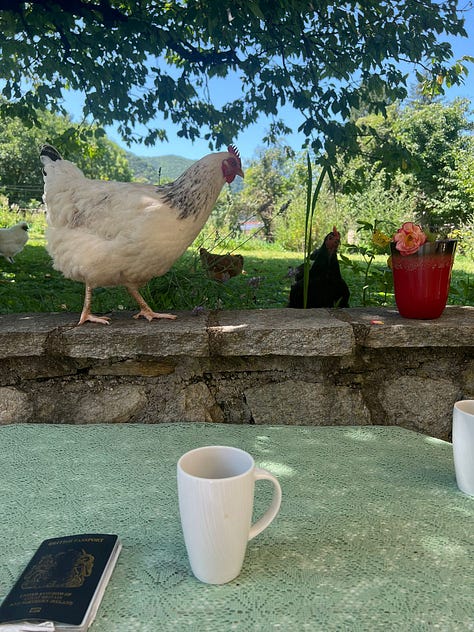


KM0 archive: Eight Seconds – the greatest finish ever
For the first time in 35 years, the Tour de France concludes with a time trial. The last time it happened, in 1989, Greg LeMond overturned a 50-second deficit to beat Laurent Fignon by just eight seconds, the closest winning margin in Tour history.
It’s also the subject of one of my favourite episodes of KM0, which is a two-parter, in fact. I made it in 2019 and it features LeMond and his wife Kathy as well as François Thomazeau, who covered that Tour.
You can find it on our Friends of the Podcast feed, which now includes more than 300 episodes made since 2015, including our full KM0 archive from the grand tours, uploaded in the order they were originally released, to make them easier to find. You can find 8 Seconds by scrolling back to our 2019 episodes on the feed. LB
Join us for a ride for Richard in Scotland tomorrow
A final reminder that there’s an event to remember our friend and co-founder Richard Moore in Scotland tomorrow. A plaque commemorating Richard and his contribution to cycling will be unveiled by world record-breaking endurance cyclist Mark Beaumont.
Saturday, July 20
West Lothian Cycle Circuit
McGinley Way, Linlithgow EH49 6SQ
Circuit open: 10.00 to 13.00
The plaque will be unveiled at 11.00.
The Cycling Podcast’s post-Tour schedule
We will be taking a short break after the Tour de France, returning with a pair of episodes of Arrivée to cover the men’s and women’s Olympic Games road races.
Before that, there will be a couple of episodes of KM0 – firstly one made by Richard, Mitch and Graham at the Tour and a bonus interview episode conducted by Lionel earlier this week.
The grand tour season concludes with daily coverage of the Tour de France Femmes with Rose Manley and Denny Gray, which leads us straight into the Vuelta a España, which will be hosted by Daniel Friebe and a cast of special guests.
The Cycling Podcast forthcoming schedule
Next week – KM0 for Friends of the Podcast
Saturday, August 3 – Arrivée, men’s Olympic road race
Sunday, August 4 – Arrivée, women’s Olympic road race
w/c August 5 – Tour de France Femmes preview with Rose and Denny
Monday, August 12 to Sunday August 18 – Tour de France Femmes daily episodes
Saturday, August 17 to Sunday, September 8 – Vuelta a España daily episodes
Toast the Tour with DVine Cellars
There’s still time to get the case of wines Greg Andrews and the team at DVine Cellars have put together to match the route of the Tour.
The DVine Cellars 2024 Tour case
• Domaine Dupraz En Route Pour l'Apero Jacquère, Savoie, France
or Domaine Bruno Lupin Roussette Frangy, Savoie, France
• Domaine Corsin, Macon-Villages, Burgundy, France
• Domaine du Salvard, Cheverny Rouge, Gamay & Pinot, Loire Valley, France
• Chateau Paillas 2016 Cahors, France
• Bergerie de L'Hortus Blanc Pic St Loup, Languedoc, France
• Chateau de L'Escarelle, Les Deux Anges, Provence, France
The Cycling Podcast is supported by MAAP
A big thank you to MAAP for supporting The Cycling Podcast. Check out the full range of clothing to make you look the part on, and off, the bike at maap.cc



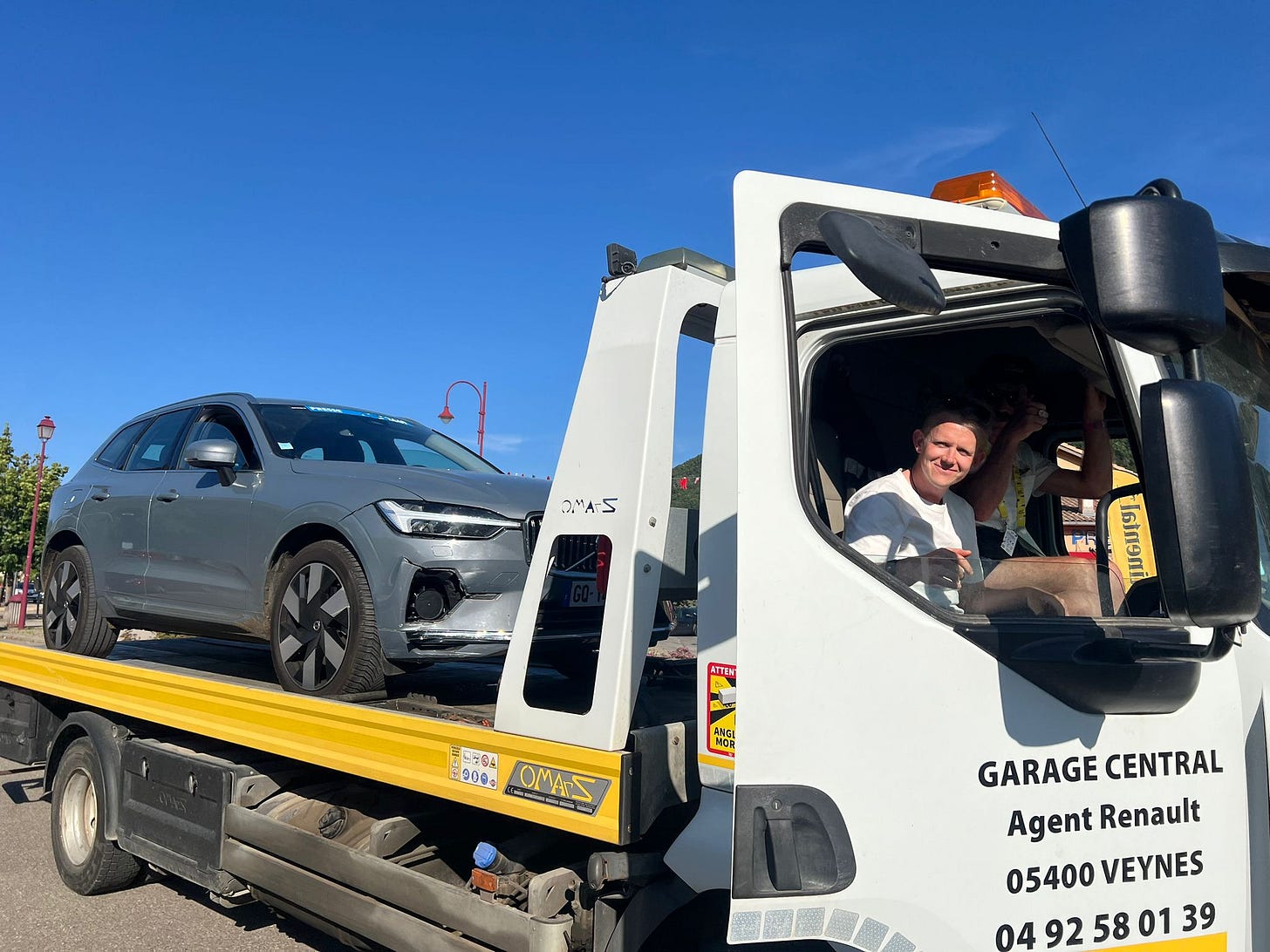

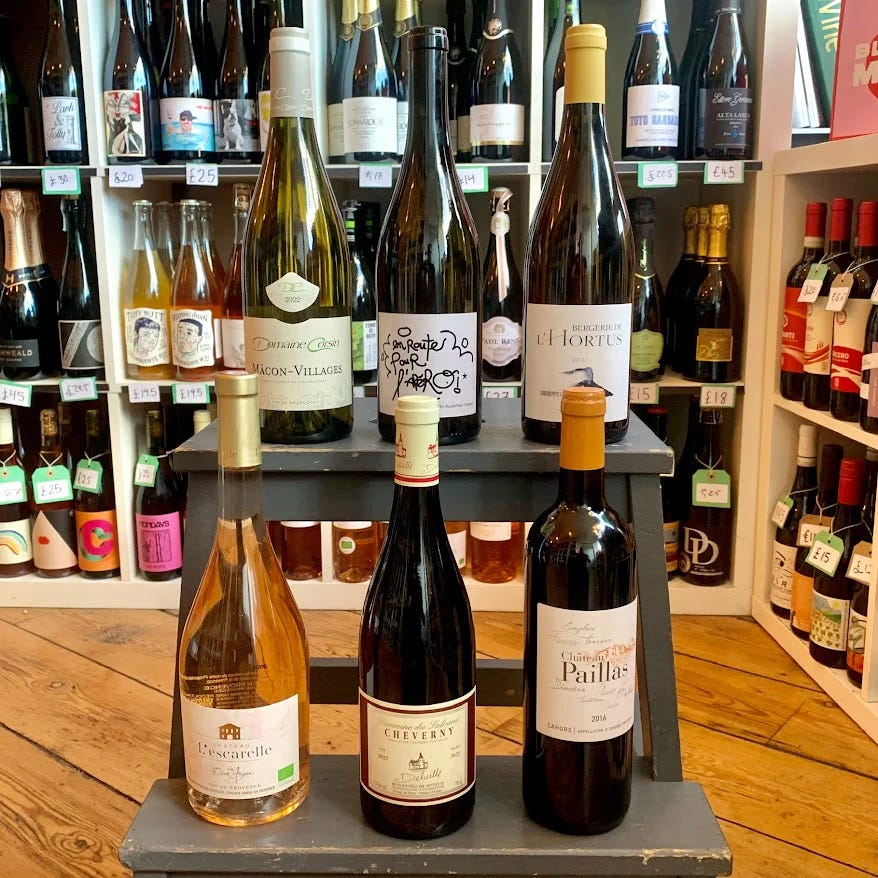
Thank you for the extended story on Biniam and cycling in Africa - he is inspiring to say the least. And I for one appreciate your continuing to refer to Twitter and not the stupid rebranded name it now tries to go by.
Absolutely fantastic dailies - the team gelled immediately and each day was a joy. Thank you.